A replica of the Boeing 787-8.
Engine type: Rolls-Royce Trent 1000
Credit to @GalacticaAsia for his Reworked B787-9[RR]
About the History of Boeing 787
The Boeing 7E7 was announced on 29th January 2003 following the cancellation of the Sonic Cruiser. The aircraft was renamed the Boeing 787 in 2005. This important design marked a major shift in technology for Boeing, which aimed for maximum fuel efficiency in a number of ways. Chief among these was a radical change of construction material, with much of the aircraft being built of carbon fibre reinforced plastic (CFRP). Additionally, the fuselage was produced as 'barrels' rather than sheets of material, reducing the number of fastenings required. This further increased the weight savings. Many of the aircraft's systems are now electrically operated, replacing the heavier hydraulic systems of earlier Boeing designs with lighter technology. The engines are new designs with increased fuel efficiency. Both the General Electric GEnx and Rolls-Royce Trent 1000 designs are available. Boeing decided to use bleedless designs, another major change for aircraft of this class. Interestingly, Airbus decided not to use bleedless technology on its competing Airbus A350 design and it remains to be seen which approach offers the greatest benefits over the other. The rear engine nacelle has a distinctive rippled look which reduces noise as the engine exhaust and external air mix. For passengers, there have been a number of technology improvements. Most noticeably, the windows are amongst the largest in a civil airliner and are lower on the fuselage than is usual, so that passengers have a better view downwards. The lighting system use LED technology allowing each customer great flexibility on the lighting schemes it can use. The pressurisation system features a lower cabin altitude than normal and allows increased humidity, both factors which will contribute to passenger comfort during a long flight. With all these technology advances and a distributed manufacturing program that was very new to Boeing, it is not suprising that the program encountered a number of delays. However, the first aircraft was delivered to a customer, All Nippon Airways, in September 2011.
Have a nice flight!
Version 1.01:
Fixed minor issue with the right inboard aileron.
Specifications
General Characteristics
- Predecessor [Reworked]B787-9[RR]
- Successors 8 airplane(s) +168 bonus
- Created On Windows
- Wingspan 197.1ft (60.1m)
- Length 186.1ft (56.7m)
- Height 56.1ft (17.1m)
- Empty Weight N/A
- Loaded Weight 121,062lbs (54,913kg)
Performance
- Power/Weight Ratio 0.499
- Horse Power/Weight Ratio 0.024
- Wing Loading 26.0lbs/ft2 (127.0kg/m2)
- Wing Area 4,654.4ft2 (432.4m2)
- Drag Points 15181
Parts
- Number of Parts 643
- Control Surfaces 9
- Performance Cost 2,787

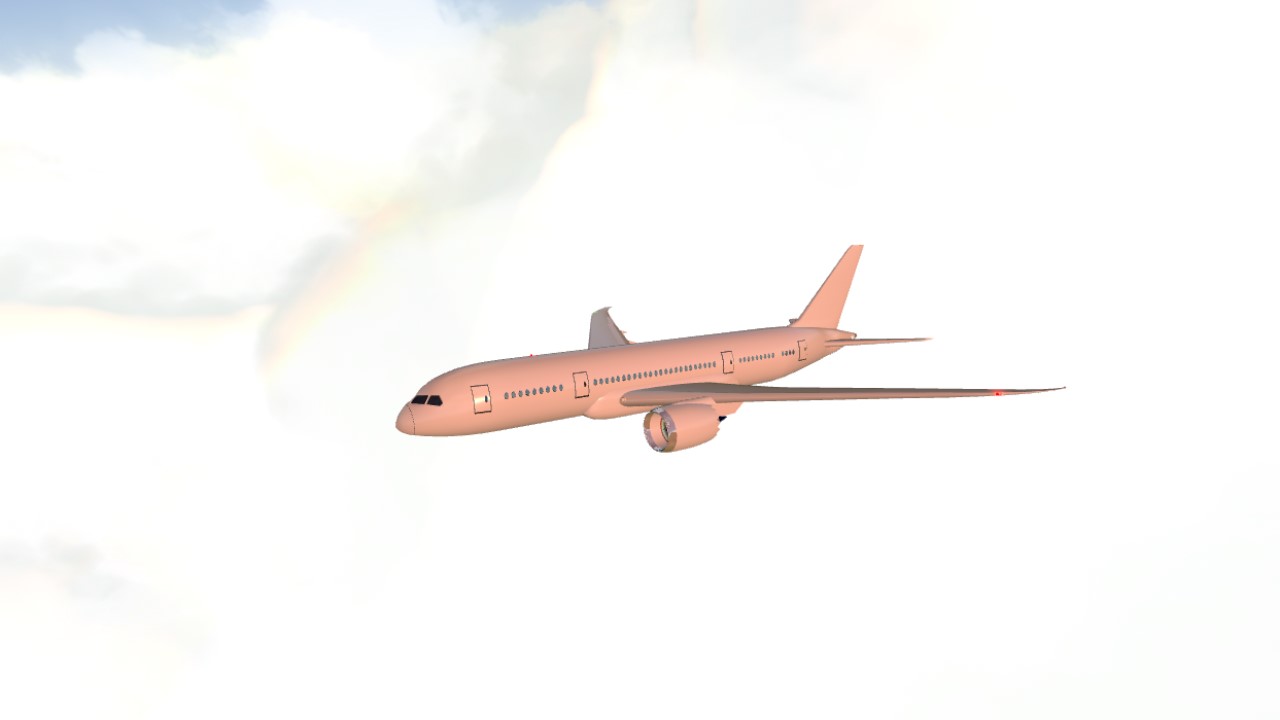
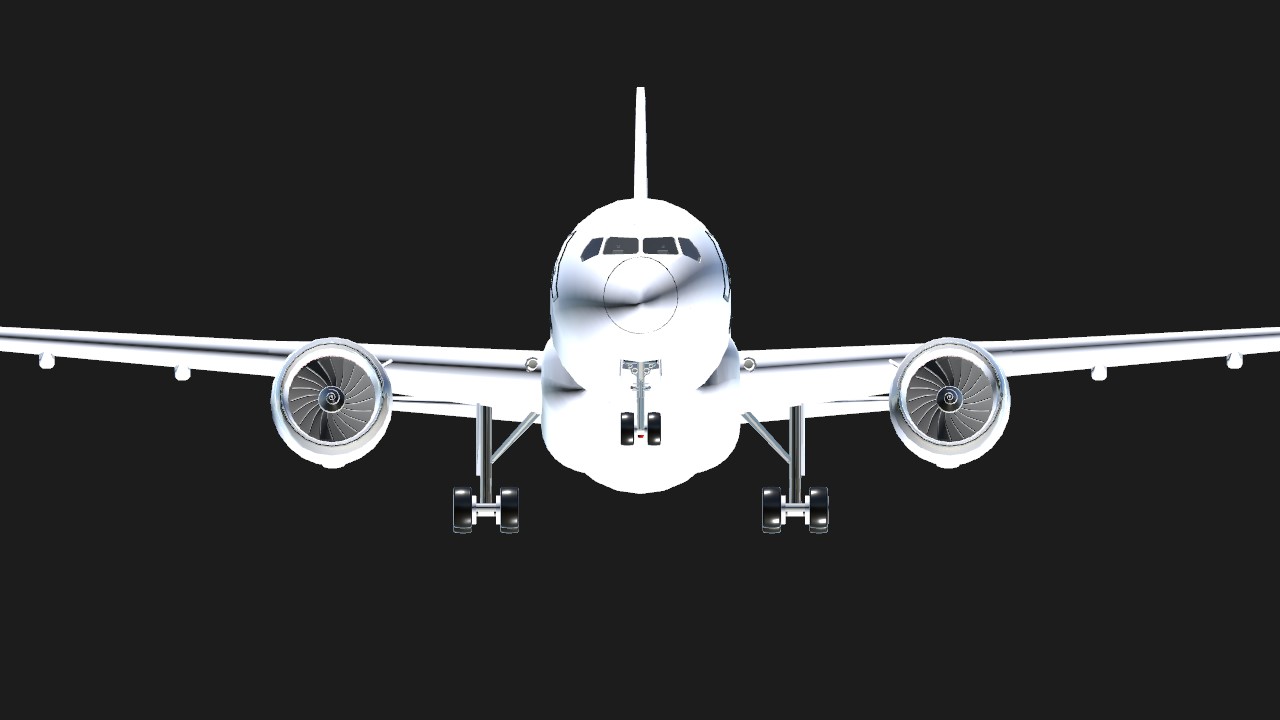
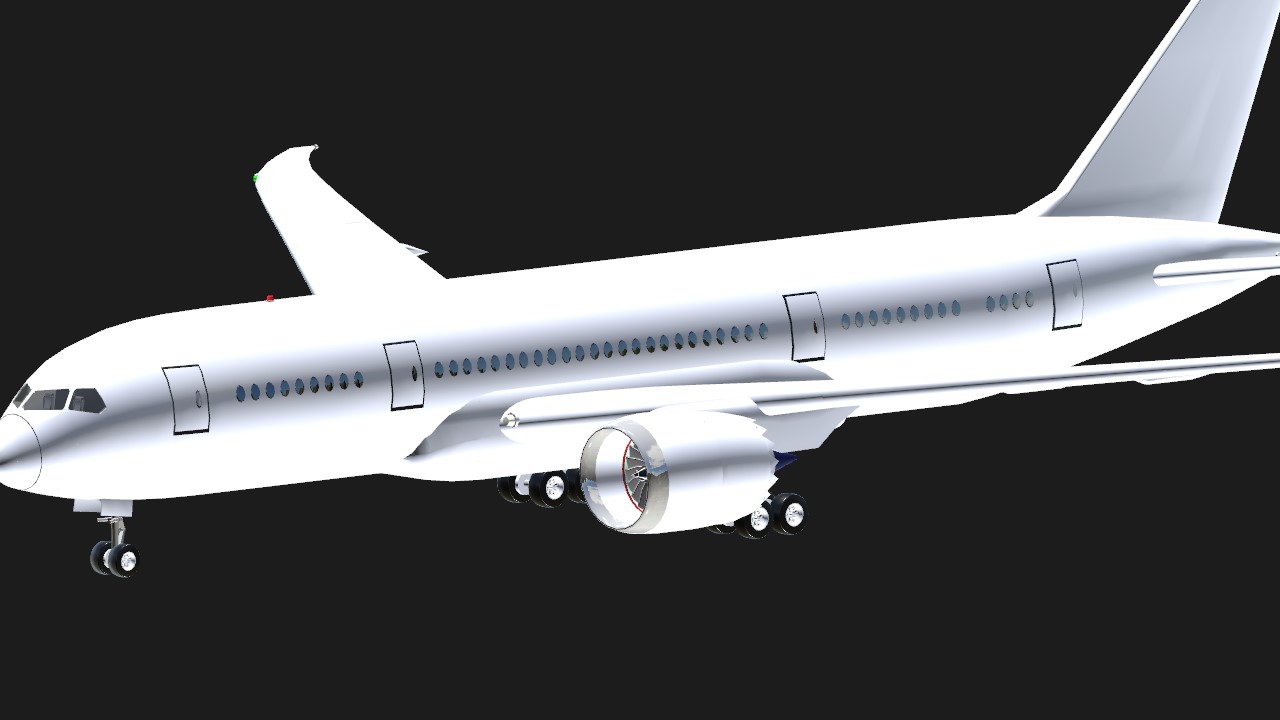
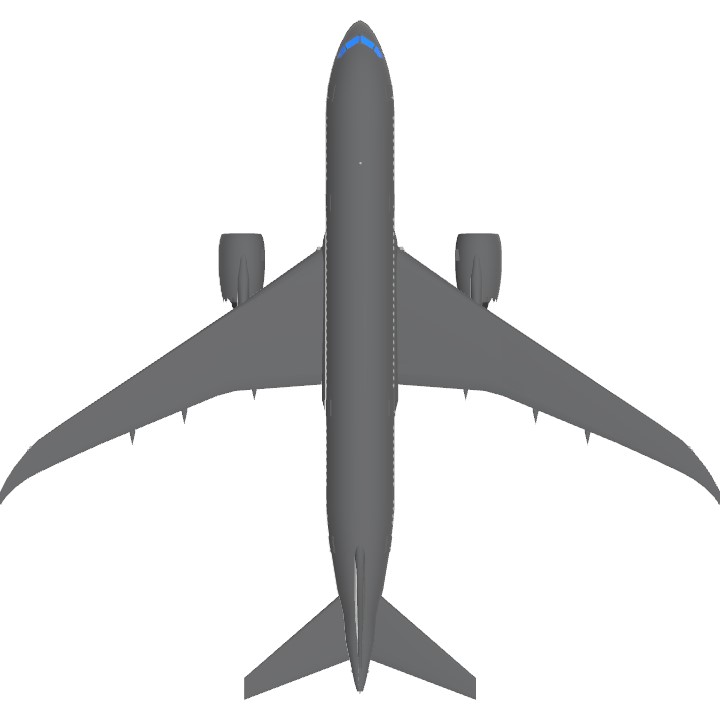
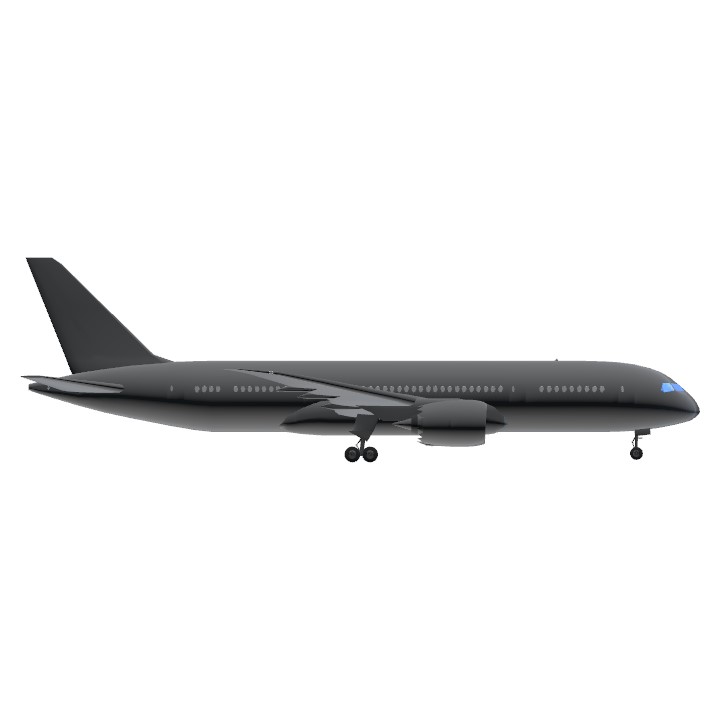
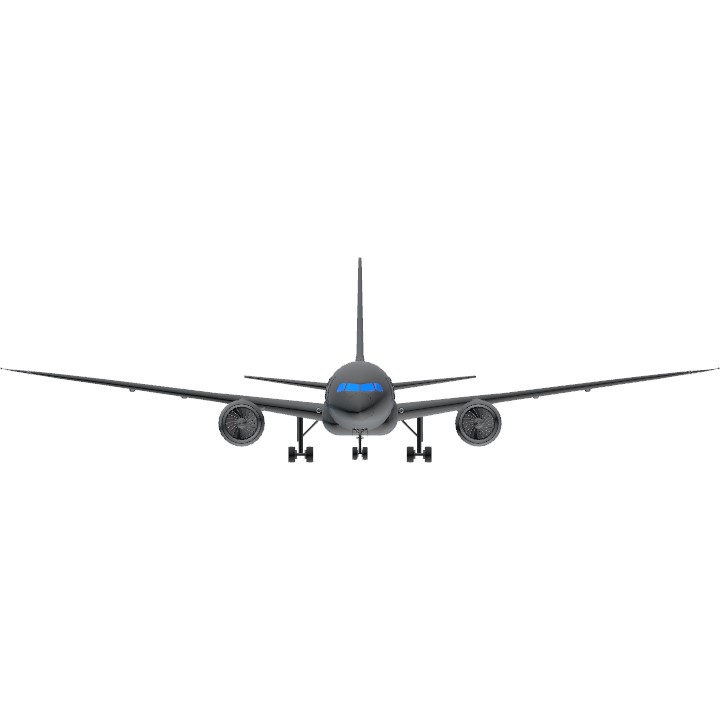
Credits:@GalacticaAsia's [Reworked] B787-9[RR]
Updated windows?